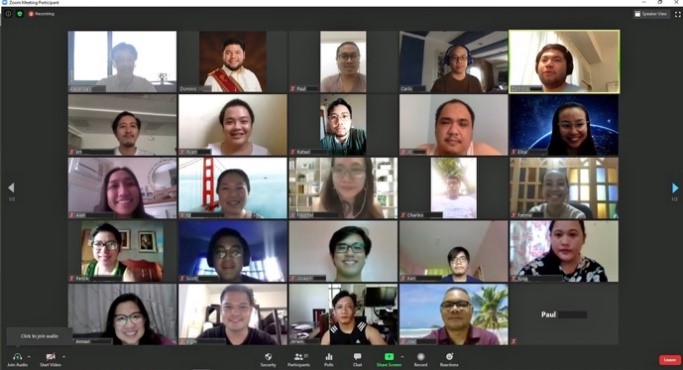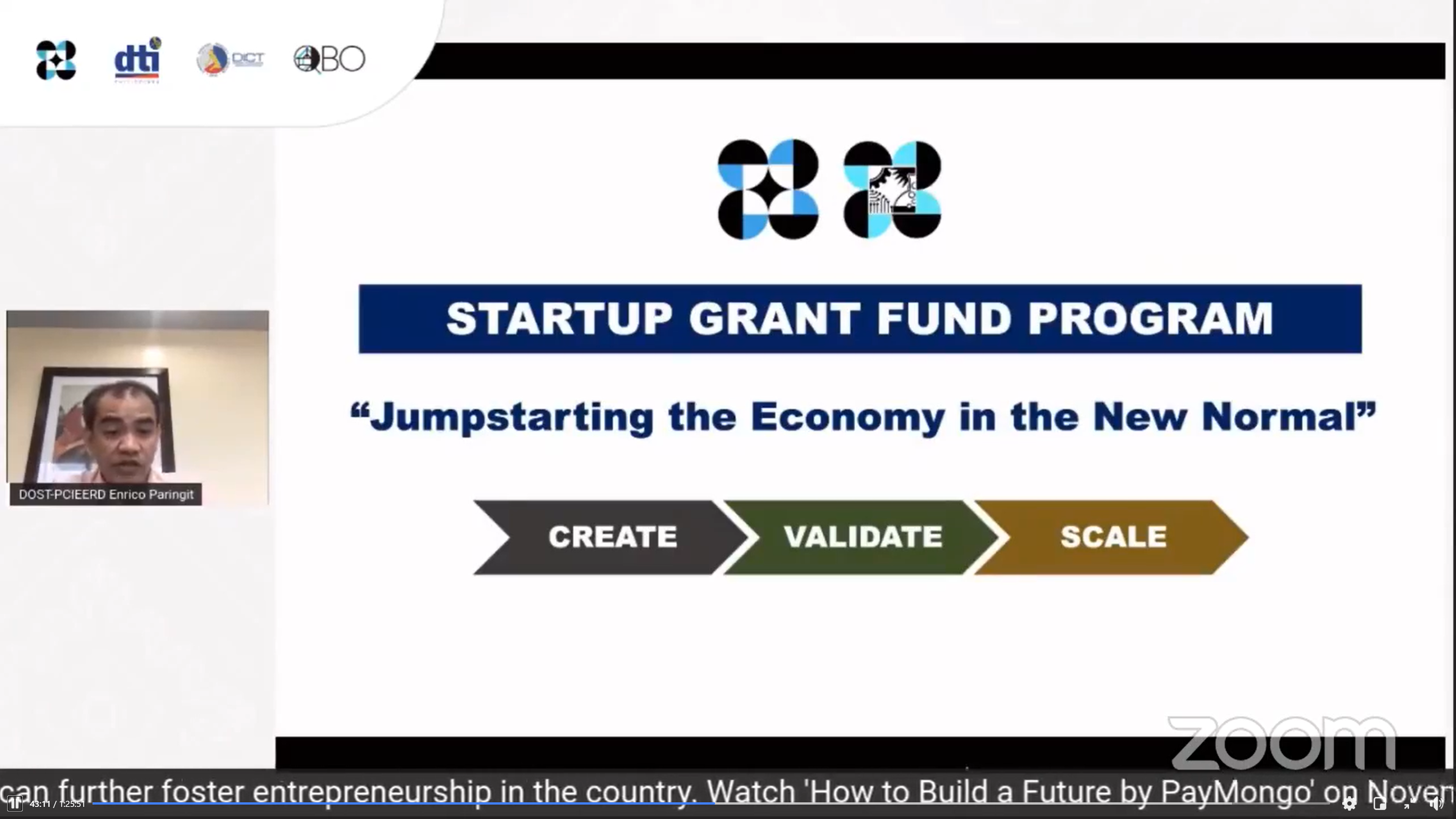The Department of Science and Technology – Philippine Council for Industry, Energy and Emerging Technology Research and Development (DOST-PCIEERD) officially launched the Startup Grant Fund Program at the 4th Technology Business Incubator Summit, one of the major events at this year’s Philippine Startup Week.
DOST Executive Director Dr. Enrico Paringit disclosed that the Startup Grant Fund Program is the Council’s response to the demand for quick and rapid solutions adapting to the “New Normal”
“We hope to support startups with technology-based solutions that can potentially contribute to economic rebirth of our country. By supporting the creation or deployment of more post-COVID19 products and services, we are looking at opportunities to provide additional jobs, raise revenue, and attract local and foreign investment,” he said.
Paringit said the Startup Grant Program will provide funding opportunities for innovative startups for their research and development (R&D) activities as they develop solutions in line with the program theme “Jumpstarting the Economy in the New Normal”.
He said the program intends to provide a fund mechanism that would support local startups, help them focus on providing solutions that are relevant to the needs of the people, and reinvigorate the economy during this post-COVID situation with provisions for the funding support, aligned with the Innovative Startup Act of 2019 (RA 11337).
The Startup Grant Fund Program is established to overcome R&D roadblocks by means of prototype improvement, conduct of feasibility studies, development of product specifications, as well as validate user requirements, to strengthen their intellectual property (IP) by means of protection and development of the appropriate IP strategies.
It also aims to help startups establish initial market traction and engage one (1) or two (2) potential users and/or clients for feedback/validation, to refine their business model based on the user and/or client feedback in order to establish acceptable product offerings or service packages with defined pricing and financial metrics, and lastly, to prepare business continuity plans for operations, expansion of IP protection in other countries, as continuous marketing programs.
The Program shall organize startups who will provide automated, digitalized, and contactless solutions under the following areas of concern:
- Sustainable Industries - Technologies intended to fill-in the gaps in the value chain of critically important industries to increase productivity, reduce costs and facilitate production and distribution of goods in the new normal
- Supply chain and logistics management - Technologies that reduce dependency on physical labor across transportation, logistics and warehousing; platforms for online matching and delivery of goods from source to point of use
- Learning/Education - Technologies in support of remote learning, distance education, and online learning in response to the surge in online teaching in schools and universities
- Work from home productivity tools - Productivity tools that remote workers can use for connection, collaboration, workforce monitoring, time management, etc
- Content and talent development - Tech support for content and talent development, infusion/ enhancement of new digital tools and technologies, marketing and customer engagement activities
- Digitally empowered Tools for public –service - Digital tools that will enable government agencies to consistently deliver public services at a faster rate, a wider reach but with enhanced accuracy and transparency
Paringit said the DOST shall issue the new guidelines for the Startup Grant Fund that is now more aligned to the provisions of the Innovative Startup Act.
He said public consultations will be conducted by DOST with the startups and startup community this December in Luzon, Visayas and Mindanao.
“With the new guidelines in place, PCIEERD shall start officially accepting proposals for the Startup Grant Fund Program starting December 2, 2020 until February 1, 2021, we will be announcing the first batch of grantees of the new Startup Grant fund by May 2021,” he said.
In 2017, PCIEERD was the first to provide R&D grants amounting to P66M to fifteen (15) startups for them to overcome their R&D roadblocks, validate their products/services, strengthen their Intellectual Property, and refine their business model.
This enabled the 15 startups to collectively acquire 328 clients, generate P84M in revenues, raise P45M investment, and create 142 jobs. With the passage of the Innovative Startup Act (RA 11337), the other DOST Councils and agencies will also be implementing their own Startup Grant Program to cover more sectors and cater to more startups.
The Philippine Startup Week is an annual celebration organized by DOST, the Department of Trade and Industry (DTI) and Department of Information and Communications Technology (DICT), in partnership with QBO Innovation Hub and the startup community.
This year, the TBI Summit featured keynote messages and panel discussion of different local and international startups and startup enablers anchored on the theme “Building a Sustainable Startup Ecosystem in the Midst of the Pandemic”.
Watch the DOST TBI Virtual Summit at https://www.facebook.com/dostpcieerd/videos/1087790648347192.








